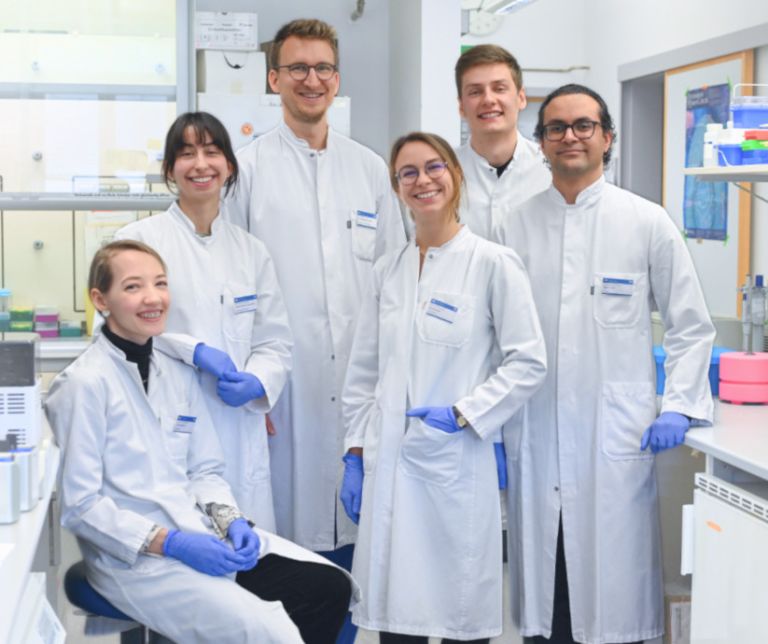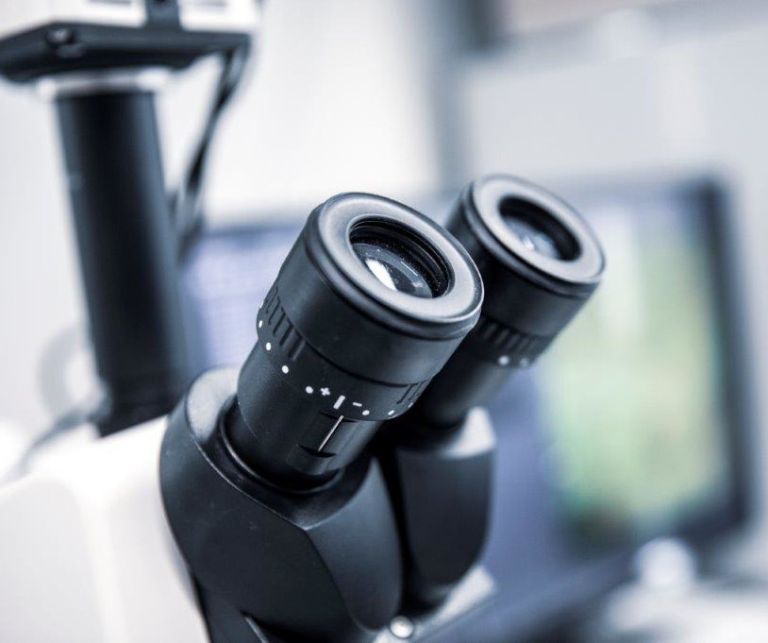für Innere Medizin II
direktion.med2@mri.tum.de
Our group studies the intestinal neuro-epithelial crosstalk in homeostasis and regeneration.


Team
Research background
The enteric nervous system (ENS) innervates small and large intestine with a complex network of neurons, which enable the unique, predominantly autonomous regulation of intestinal absorption, secretion and peristalsis. Multiple neurotransmitters, in their variety resembling the complexity of the central nervous system, execute local neuronal activation. The importance of the ENS for regular homeostasis becomes apparent upon structural abnormalities (often genetic diseases) or functional alterations of neuronal signaling (often inflammation; tumorigenesis).
The intestinal epithelium is surrounded by the intestinal niche, a complex mixture of mucosal cells and signaling molecules, which closely modulate epithelial cell function. Enteric neurons are an essential component of the intestinal niche. The focus of our work is to characterize the functional role of neuronal signaling within the intestinal niche. Neuro-epithelial interactions will be characterized by employing in vivo and in vitro models in homeostasis and regeneration. In particular, we aim to investigate neuronal signaling in the intestinal stem cell niche.
Publications
> PubMed
Medical theses | PhD | Grant support
For inquiries regarding open MD or Master positions on "neuro-epithelial interactions" please contact me by email. We currently have an open PhD position on the modulation of ISCs by the peptide hormone VIP.